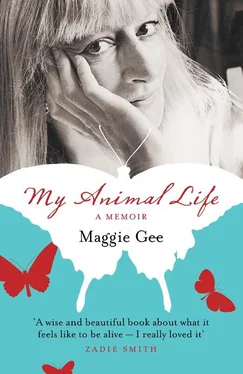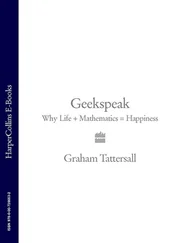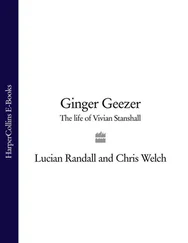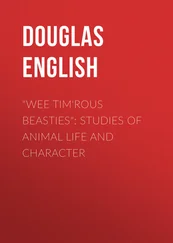The forbidden had to do with the bikes. Unable to learn to ride because of my father’s obstinacy, I had done it, in the end, with frantic speed, on my cousin Sue’s bike on Wolverton Rec (pronounced Wreck; I didn’t know it was short for ‘Recreation Ground’) when we were at my grandparents, on holiday. I remember the bike: small, bright turquoise. Perhaps Uncle Lloyd had painted it. And the giddy feeling: cycling furiously forwards, having finally got up the speed to keep going, riding wildly on, unable to steer, unable to stop, until I fell off. I was probably about eight or nine when I learned, and I had had no practice since.
That didn’t matter. Janet had plans for us. ‘Let’s cycle to the sea,’ she said one Saturday. How did she know how to get to the sea? The sea was twenty miles away, and the road already had heavy traffic. ‘We’ve got a spare bike.’ They had; but the brakes were dreadful, and there was no suspension. As a total amateur, I did not notice this. Hurray! For not noticing, for no health and safety! Hurray for two teenagers biking to the sea!
I remember the snacks: Bourneville chocolate and peanuts, and freewheeling downhill, queen of the world, a tiny Janet flying on ahead of me, with round green fields on either side, cool sunny air blowing back my hair and the smooth whizzing sound of the chain for music, unable to brake, soon going so fast that the impetus carried me half-way up the next one — fortunately, as most hills defeated me, and Janet had to wait while I trotted up behind her. The bike had no gears, and the tyres needed pumping, and one of the handgrips was nearly worn away, but it opened up the world, it made us girls heroes, proved we could do more than our parents had told us.
Oddly, I don’t remember if we got there. If we did get there, what did we do? I think it was Seaford, and we were tired, and had one portion of chips between us, and rested our aching calves on cool sand. But it was the riding away that mattered.
What else do children ideally need? Alasdair Gray once wrote that all children need is two adults who cohabit in relative amity. In which case, I didn’t get what I needed, and nor do a lot of other children. I haven’t always given it to Rosa, either. Nick and I love each other to distraction, but the distracted don’t always get on. We are over-reactive, mercurial, rash. When trouble comes, it’s hard to stay calm. I rage and he sulks, or he rages, and I’m fearful, but because of my history, I have to shout back, lest I turn into my quiet, frightened mother. Then something shifts, and we are laughing and tender. Sorry, Rosa, again, for the tropical storms. Though I hope you’ve never had to fear your father would murder your mother, which was my fear, as a child.
Standards. I do believe children need standards, even as something to rebel against. Not that I like the word ‘standard’, which sounds, well, too standard . But the other sense of ‘standard’ works for me: a flag held up against the blue, a watchword to remember when there are hard times. Nick’s mother told him this: ‘Always be kind, always be faithful, always be true.’ When my whole career started to crumble before me, a friend of mine, not a very close one but a woman I had always liked, said, ‘This is when character tells.’ That was bracing. But I think it had such an effect because it took me back to things I had been taught as a child, most of them by my father: Never give up. Have some backbone . The Gees were too free with moral precepts, yes; but sometimes moral precepts can help.
There are useful absolutes. Do your best. Don’t steal, don’t cheat, don’t tell on people . They are ropes to hold on to in trouble. When parents from my own generation, liberal baby-boomers all, tell me they feel morally at sea with their kids — ‘you can’t preach to them, their world’s so different’ — I think, is it really so different? Children need their parents to have some expectations, or else they will push, and push, and push, to see if there are any boundaries at all, and sprawl on their faces when nothing is there.
Hope. Children need hope. Should parents, ‘being honest’, diminish their hopes? ‘He’s hopeless at cricket, just like me.’ ‘I’m afraid that Alfie is a klutz at the piano, he takes after his father and mother.’ Smiling charmingly at their own deficiencies, but also miring Alfie in them. To the child: ‘For heaven’s sake put down those plates, you’re only going to drop them again.’ To you, as the family arrives at your house: ‘I’m sorry that Sally can’t say hallo properly, it’s not that we haven’t taught her any manners.’ Neither you nor Sally had noticed this gaffe, but the parent is terrified you will judge them. To their son, who has a plan: ‘Don’t waste your money on buying a guitar, you’ll only give up, like you did with the recorder.’ To an adult who is showing interest in the child: ‘It’s not worth asking her a question about that, she won’t have anything interesting to say.’ I have heard them all, wincing for the child. Nearly always, the parent is projecting their own failings on to the children, not seeing that others don’t look at children simply as culpable extensions of the parents. So they pass on cruel judgements that were probably made about themselves, a lifetime ago, by their own parents. But children need not to be publicly judged by their parents. If it happens too often, they believe the judgements.
Bigger despairs can be passed on. Children have a right not to despair of their world.
When I was just eight, our teacher, Mr Norris, addressed the whole junior school together, which wasn’t hard, for in the tiny village school at Watersfield, all the over-fives were in the same classroom. He had thin sandy hair and a bird-beak nose and that morning his voice was more serious than usual. I think it was November 1956. Perhaps Mr Norris didn’t have a family; perhaps, that day, he needed one. He looked across us, we plain village children whose ages stretched between five and eleven; he must have seen the usual round pink faces, the unlined brows that understood nothing; the people with whom he spent his days. Smells of fart and fidgeting. And then out of the window at the sunny, chilly playground fringed with yellowing willows, then the blank water meadows.
‘The next few days’, he told us, slowly, ‘will decide if the world will go to war. Planes are already in the air …’ That is all I remember of the speech that followed, and all it needed to infect me with terror.
In fact, the Suez crisis was ratcheting up into its worst phase. Israel had just invaded Egypt as part of a Franco-British deception. Russia was threatening reprisals. But none of us children knew anything of this. I had gathered from reading the Daily Herald , the more basic of the two papers we took, that there were bad people called communists, who sometimes pretended not to be, so every so often they had to be unmasked, often in things called unions. Those were the days of reds under the beds. I knew that Russia was our enemy. Suez, though, was a blank to me.
But war — the next days would decide if the world would go to war. Russia was somehow involved in it. For children who’d grown up, as all of us had, in the immediate shadow of World War Two, whose fathers had fought in it, and come back changed, who had heard their parents talk about the war a thousand times — if ‘war’ was mentioned by our head teacher, that meant the thing behind the shadow would come back, the terrifying thing we had all escaped by inches. War meant death. War was the end.
And indeed, things must have looked black to Mr Norris and other grownups at the time. I know now that American air defence — NORAD — had been told that unidentified aircraft were flying over Turkey, a hundred Soviet bombers were in the air, a British bomber had been shot down over Syria, the Soviet fleet was on the move. These ‘facts’ had moved forward contingency plans for a NATO nuclear strike against Russia.
Читать дальше












